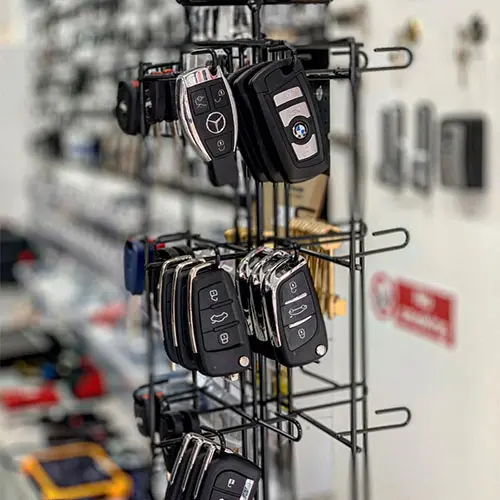
28
junioWhat's The Job Market For Vehicle Lock Repairs Professionals?
Vehicle Lock Repairs: Ensuring Safety and Security
In a world where vehicle theft and break-ins prevail, guaranteeing that a vehicle's locking mechanism is operating efficiently is essential for both safety and security. Vehicle lock repairs include a variety of fixes and upkeep procedures that resolve problems related to locks and ignition systems. This article supplies an introduction of the kinds of vehicle lock concerns, indications of breakdown, repair choices, and preventative procedures while also answering some frequently asked questions.
Comprehending Vehicle Lock Mechanisms
Vehicle locks employ numerous mechanisms that differ among makes and models. The primary components of a vehicle lock system normally consist of:
- Key Cylinder: The part where the key is inserted.
- Locking Bolt: Engages and secures the door when locked.
- Latch Assembly: Holds the door closed but can be disengaged when opening.
- Ignition Lock: Secures the ignition system of the vehicle.
Each of these components can be vulnerable to use and tear or unanticipated failure, causing lock-related concerns.
| Component | Description | Typical Issues |
|---|---|---|
| Key Cylinder | Accepts the key to operate the lock | Key jams, problem turning the key |
| Locking Bolt | Mechanism that secures the door when locked | Bolt misalignment, stuck bolt |
| Latch Assembly | Engages and disengages to secure the door | Broken latch, improper function |
| Ignition Lock | Protects the ignition to begin the vehicle | Key will not turn, ignition failure |
Signs of Lock Malfunction
Vehicle owners ought to be watchful for signs that their lock systems may be stopping working. Some common signs of lock issues include:

- Difficulty Inserting Key: If the key does not quickly fit into the cylinder, there might be particles inside or use occurring within the cylinder.
- Stuck Key: A key that gets stuck while turning can suggest internal damage or misalignment.
- Locked Door Will Not Unlock: If a door declines to unlock, it could be due to a malfunctioning locking bolt or lock.
- Uncommon Noises: Grinding or clicking sounds while attempting to lock or unlock the door can indicate structural problems in the locking mechanism.
- Faulty Remote: If the key fob is not reacting, the issue may lie not just with the fob's battery however could also point towards issues in the lock receiver in the vehicle.
Repairing Vehicle Locks
Dealing with a vehicle lock problem can be complicated, and while some repairs can be dealt with in the house, others may need expert support.
Do it yourself Repairs
Some small lock concerns can be fixed without the aid of a mechanic. Here are a couple of examples:
- Lubrication: Regularly apply a silicone-based lubricant to key cylinders and locks to prevent sticking.
- Tidy the Key: Dirt on the key can trigger jamming in the key cylinder. Tidy keys with rubbing alcohol to remove dirt or residue.
- Check the Battery in the Remote: For remote key fobs, validate that the battery is practical by evaluating it with another vehicle or having it changed.
Expert Repairs
For more significant problems, professional repairs might be essential. Typical professional services consist of:

- Key Replacement: If the key is lost or damaged, a locksmith can produce a new key or rekey the lock.
- Reprogramming Key Fobs: Sometimes the remote requirements to be reprogrammed to sync with the vehicle's receiver.
- Comprehensive Lock Replacement: In extreme cases, entire locking systems may need replacement due to harm or wear.
Preventative Measures
To extend the life expectancy of vehicle locks and avoid concerns, think about the following preventative procedures:
- Regular Maintenance: Periodic inspection and lubrication of locks can avoid future malfunctions.
- Avoid Excessive Force: Handling keys and doors carefully can lower endure locking systems.
- Right Away Address Issues: If issues develop, addressing them without delay can avoid further damage and more costly repairs.
Frequently Asked Questions
Q: How do I understand if my vehicle lock requires repair?A: Look for indications such as trouble inserting the key, strange noises, or the door stopping working to lock or unlock. Q: Can I repair a stuck lock myself?A: Simple issues such as lubrication might
be solved in your home; however, complex problems normally require specialists. Q: How much does it cost to repair a vehicle lock?A: Costs can vary extensively based on the concern and vehicle type. Basic repairs may start around ₤ 50, whereas lock replacements can cost a number of hundred dollars. Q: What need to I do if I lose my car key?A: Contact a locksmith or your dealership for a replacement key. They may need your vehicle identification number (VIN )to produce a brand-new key. Q: Are aftermarket keys as reliable as initial keys?A: Aftermarket keys can be less reputable than OEM keys, as they might not adhere to the same specs and quality requirements.
Preserving the integrity of a vehicle's lock system is
crucial for overall security and safety. By recognizing the signs of a malfunction, conducting proper repairs, and executing preventative steps, vehicle owners can prevent the hassle and potential risks connected with lock problems. Ensuring that locks operate properly boosts not just the vehicle's safety but likewise the peace of mind of its owner.


Reviews